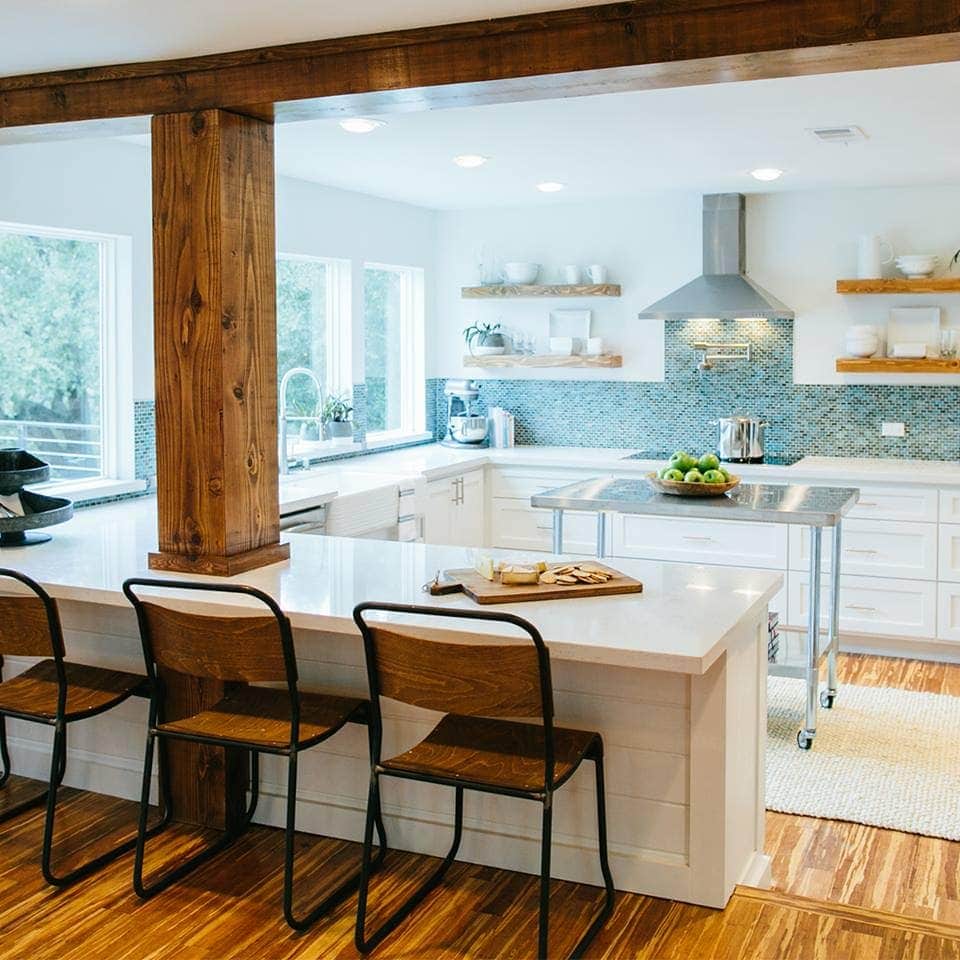Fixer upper has become a buzzword in the world of real estate and home improvement. Whether you're a seasoned investor or a first-time homeowner, the idea of buying a property that needs some TLC and turning it into your dream space is incredibly appealing. But what exactly does it mean to take on a fixer upper? And is it the right choice for you? In this article, we'll dive deep into everything you need to know about fixer upper properties, from the benefits and challenges to expert tips for success.
Buying a fixer upper isn't just about finding a bargain; it's about embracing a vision and bringing it to life. For many, it's a way to get more bang for their buck while customizing a home to their exact preferences. However, it's not without its challenges. Understanding the ins and outs of fixer upper projects is crucial if you want to avoid costly mistakes and ensure a smooth renovation process.
This guide will walk you through everything from identifying the right fixer upper property to navigating the renovation process and maximizing your investment. So, whether you're ready to roll up your sleeves and get to work or just curious about what a fixer upper entails, you're in the right place.
Read also:Who Is Eric Bollings Wife Unveiling The Life Of His Partner
Table of Contents
- What is a Fixer Upper?
- Benefits of Buying a Fixer Upper
- Challenges You Might Face
- How to Find the Right Fixer Upper Property
- Expert Renovation Tips for Fixer Upper Projects
- Creating a Realistic Budget
- Financing Options for Fixer Upper Properties
- Ways to Increase Property Value
- Common Mistakes to Avoid
- Conclusion: Is a Fixer Upper Right for You?
What is a Fixer Upper?
Let's start with the basics: what exactly is a fixer upper? A fixer upper is a property that requires some level of renovation or repair before it can be considered fully functional or aesthetically pleasing. These homes often come at a lower price point compared to move-in-ready properties, making them attractive to buyers who are willing to put in the time and effort to bring them back to life.
Fixer upper properties can vary widely in terms of the scope of work needed. Some might just need cosmetic updates like fresh paint and new fixtures, while others could require major structural repairs. The key is to find a property that aligns with your skills, budget, and vision.
Types of Fixer Upper Properties
When it comes to fixer upper homes, there are generally two categories:
- Cosmetic Fixers: These properties need updates to their finishes, fixtures, and decor. Think new flooring, updated kitchens, and modern bathrooms.
- Structural Fixers: These homes require more significant repairs, such as foundation work, roof replacements, or electrical upgrades. Tread carefully with these, as they can quickly eat up your budget.
Benefits of Buying a Fixer Upper
There are plenty of reasons why people choose to buy fixer upper properties. Let's take a look at some of the top benefits:
- Cost Savings: Fixer uppers typically come at a lower price point than move-in-ready homes, allowing you to stretch your budget further.
- Customization: With a fixer upper, you have the opportunity to design your dream home from the ground up, ensuring it reflects your personal style.
- Investment Potential: Renovating a fixer upper can significantly increase its value, making it a smart financial move if you're looking to sell in the future.
Of course, like anything else, there are trade-offs to consider. But for many, the benefits outweigh the challenges.
Read also:Rick Ness Voice The Phenomenon Taking The World By Storm
Challenges You Might Face
While fixer upper projects can be incredibly rewarding, they're not without their hurdles. Here are some common challenges you might encounter:
- Hidden Costs: It's not uncommon for unexpected expenses to crop up during renovations, from plumbing issues to structural problems.
- Time Commitment: Renovating a home can be a time-intensive process, especially if you're doing some of the work yourself.
- Permit Requirements: Depending on the scope of your project, you may need to obtain permits, which can add to both the cost and timeline.
Despite these challenges, many people find that the end result is worth the effort. The key is to go in with your eyes open and a solid plan in place.
How to Find the Right Fixer Upper Property
Now that you understand the basics of fixer upper properties, it's time to start your search. Here are some tips for finding the perfect property:
1. Set Your Criteria
Before you start looking, determine what you're looking for in a fixer upper. Consider factors like location, size, and the type of renovations you're willing to take on.
2. Work with a Real Estate Agent
A good real estate agent can be invaluable in helping you find the right property. They'll know the market and can alert you to potential deals that meet your criteria.
3. Attend Auctions
Bank-owned or foreclosure properties often sell at auctions, where you can snag a great deal on a fixer upper. Just be prepared to move quickly, as these sales can be competitive.
Expert Renovation Tips for Fixer Upper Projects
Once you've found your dream fixer upper, it's time to roll up your sleeves and get to work. Here are some expert tips to help you navigate the renovation process:
- Start with a Plan: Before you do anything, create a detailed renovation plan that outlines the work to be done and the timeline for completion.
- Prioritize Essential Repairs: Focus on addressing any structural or safety issues first before moving on to cosmetic updates.
- Hire the Right Professionals: While some projects can be DIY, others require the expertise of licensed contractors. Don't cut corners when it comes to hiring skilled professionals.
Remember, the goal is to create a space that's both functional and beautiful. Keep your vision in mind throughout the process, and don't be afraid to make adjustments as needed.
Creating a Realistic Budget
Budgeting is one of the most critical aspects of any fixer upper project. Here's how to create a budget that works for you:
- Estimate Costs: Break down your project into individual tasks and estimate the cost of materials and labor for each one.
- Factor in Contingency: Always include a contingency fund to cover unexpected expenses. A good rule of thumb is to set aside 10-20% of your total budget for this purpose.
- Track Expenses: Keep a detailed record of all your expenses to ensure you stay within your budget.
By creating a realistic budget and sticking to it, you can avoid the financial stress that often comes with renovation projects.
Financing Options for Fixer Upper Properties
Financing a fixer upper can be a bit more complicated than buying a move-in-ready home. Here are some options to consider:
- Renovation Loans: Programs like FHA 203(k) loans allow you to finance both the purchase of the property and the cost of renovations.
- Home Equity Loans: If you already own a home, you can tap into your equity to fund your fixer upper project.
- Personal Loans: For smaller projects, a personal loan might be a viable option, especially if you have good credit.
It's important to explore all your options and choose the one that best fits your financial situation.
Ways to Increase Property Value
One of the main goals of a fixer upper project is to increase the property's value. Here are some ways to achieve that:
- Upgrade the Kitchen: Kitchens are a focal point of any home, and modernizing yours can significantly boost its appeal.
- Enhance Curb Appeal: A fresh coat of paint, new landscaping, and updated exterior features can make a big difference in how your home looks from the street.
- Improve Energy Efficiency: Adding energy-efficient windows, insulation, and appliances can not only increase your home's value but also lower your utility bills.
By focusing on high-impact upgrades, you can maximize your return on investment and create a home that stands out in the market.
Common Mistakes to Avoid
Even the most experienced renovators make mistakes from time to time. Here are some common pitfalls to avoid:
- Underestimating Costs: Don't fall into the trap of underestimating the cost of materials and labor. Always build in a buffer for unexpected expenses.
- Overlooking Permits: Failing to obtain the necessary permits can lead to fines and delays, so make sure you're in compliance with local regulations.
- Ignoring Resale Value: While it's tempting to get carried away with personal preferences, remember that your home will eventually need to appeal to potential buyers.
By learning from the mistakes of others, you can set yourself up for success in your fixer upper project.
Conclusion: Is a Fixer Upper Right for You?
Fixer upper properties offer a unique opportunity to create your dream home while potentially saving money and increasing your investment. However, they also come with their own set of challenges. If you're willing to put in the time and effort, a fixer upper can be a rewarding experience that pays off in both the short and long term.
So, are you ready to take on the challenge? Leave a comment below and let us know what excites you most about fixer upper projects. And don't forget to share this article with anyone else who might be interested in transforming their dream home!


